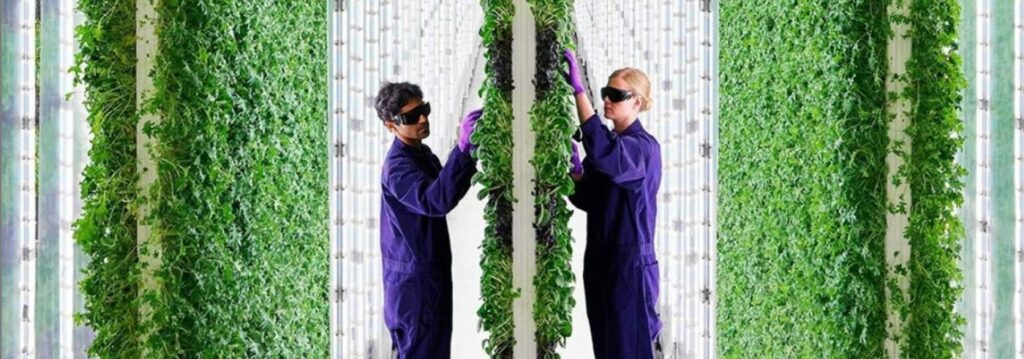+

We have been tracking this sector for a long time, and it is certainly not going away. New plants and new ideas will push its expansion as it truly eliminates the cost of externals.
Add in that all flat land needs to be properly dedicated to restorative agriculture with around 300 head of cattle per square mile at least. folding in no till cropping and the market garden is likely too labor intensive..
What is best though is that these can be built in an urban setting. So expanding the offerings matters and is certainly plausible.
.
Talking about strawberries, it is possible to use a five level industrial shelving unit around six feet long to hold growing flats for strawberries. This can go out on an apartmnet block balcony and be even plugged in to provide additional light and warmth in the winter. We do it all already and the hardware and knowhow exists.
such a strawberry farm would become welcome on any balcony as it woiuld supply a suplus of berries year round...
This 2-Acre Vertical Farm Produces More Than ‘Flat Farms’ That Are Using 720 Acres
Another massively successful vertical farming startup is pushing the future of farming towards the sky, literally and figuratively.Plenty
From an ag-tech startup named Plenty, a two-acre indoor vertical farm produces yields that would normally require a 720-acre ‘flat farm’—and it can be done with 95% less water.
Saving water is critical in an agricultural state like arid California, where Plenty is set to supply fresh produce for 430 Albertsons grocery stores.
The vision is truly one out of Star Trek, with Plenty’s use of robotics and artificial intelligence to ensure perfect plants year round.
The reasons to support indoor vertical farming are varied, ranging from climate-related benefits to removing cumbersome logistical challenges like long-distance transportation.
The company’s website says the technology “frees agriculture from the constraints of weather, seasons, time, distance, pests, natural disasters, and climate” that makes GMO-free nutrient-rich plants at scale with “extraordinary flavor.”
Perhaps that is why Driscoll’s, America’s largest fresh berry farmers, have agreed to grow their strawberries year-round in Plenty’s expanding portfolio of vertical farms.
And investors are seeing the potential of seeding their own portfolios with Plenty.
The company’s method for growing greens, like baby kale and lettuce, on giant vertical racks moved around by robotics recently garnered $400 million in investment capital from the likes of SoftBank, Amazon CEO Jeff Bezos, and former Google chairman Eric Schmidt.
Time to grow
Reductions in transportation chains would eliminate millions of tons of CO2 every year, since instead of importing produce into city centers from farms across the country or the world, you could order it from a warehouse on the edge of town.
Furthermore, Plenty’s farms grow non-GMO crops without the use of pesticides or herbicides, and recycle every drop of water that’s not used, making them extremely friendly to the environment—except for their power usage.
A spokesperson told GNN they were using 100% renewable energy for their flagship farm in San Francisco, to keep emissions down.
Bathed in sun-mimicking LED lights in climate-controlled spaces year round, the farm ensures veggies grow at an astounding rate, which produces 350-times more food per-acre.
Supply-chain breakdowns resulting from COVID-19 and natural disruptions like this year’s California wildfires, demonstrate the need for a predictable and durable supply of produce can only come from vertical farming, says Nate Storey, co-founder of Plenty.
This will be all the more important if continual warming of the planet leads to droughts or other climate-related disruptions that can’t be overcome by farmers and biologists attempting to make crops more climate and drought-resistant.
Furthermore, vegetables and fruits contain far more micronutrients than cereals, but they also spoil fast and therefore are more expensive. Nations and inner cities that have to import all fresh produce places the poorest in the society at an extreme disadvantage nutritionally speaking. Vertical farming could be the way to solve that problem permanently.
Not only that, Plenty told GNN they have introduced new packaging that is not only made of recycled plastic, it is 100% recyclable, and it keeps food fresh longer to cut food waste.